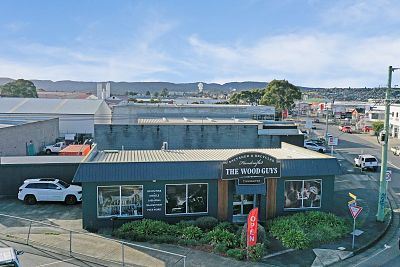Naively Operating an Unlawful Business

Naively Operating an Unlawful Business
Over my career as a Business Broker, I have found that the majority of Buyers and their cohorts, (real or imagined), focus on the financial reporting which in most cases is part of the ATO submissions. To say that this is an accurate way of confirming the business’s income, expenditure and transparency is absurd. However, in my experience, it is still the methodology that is preferred.
As a result of this focus, a buyer tends to gloss over areas that have significant value and potential for the viability of the business and its future. Examples are the authenticity or currency of the database of the business and the true transferability of agreements and understandings. Most of these are casually agreed to and continue over many years without event or challenge. Furthermore, they are not formalised and condensed into a written document. It is difficult to insist that these form part of the transferable assets of the Business.
This financial document bias or skewing often leaves some aspect of the business that needs addressing undiscovered.
In my example today, A cafe was purchased 3 years ago. It was located outside of the urban area and served as a community watering whole as there are no alternatives locally. For over 30 years, it has operated as a café selling food and coffee. In that time there have been several owners that have continued to operate in the same manner. The lease has been assigned over to these new vendors and they have not experienced any challenges besides their normal business activities. The Gold Coast City Council (GCCC) Health department issued food licences and inspected the premises as part of their mandate. The GCCC also issued a pavement licence as the business demonstrated full compliance.
The latest vendor continued in the same manner as their predecessors. They also had the lease assigned to them. That meant that the previous landlord permissions had been obtained and continued. For them, the business was showing substantial growth and an increased patronage.
As a natural progression of this trend and as part of their business plan (submitted to the landlord as part of their acceptance process), they applied for a Liquor Licence. During the application process, the licencing authority found that the business was incorrectly zoned and had been so since the inception of the business. This meant, that the GCCC was made aware and issued a cease business injunction. The vendor was compelled to apply for a Development Approval (DA) and after considerable business disruption, managed to keep the doors open whilst the DA was being processed. The business owner had to pay over $25,000 to get the approval and thereby, get the business rezoned so that they could apply for the liquor licence again.
Part of the DA compliancy requirements involved the landlord as he had to complete some aspects. One of these was to improve the parking area as it was muddy in the wet season and he had to demarcate parking bays. The vendor obtained permission
to continue the business. She knew that the landlord had to complete these issues of compliance but it was outside her area of responsibility. Unfortunately, the ordeal had soured her excitement for the business and she placed the business on the market.
It was not long that as her business broker, I received an offer that both parties accepted and we went to contract. The contract was a REIQ Business Sale contract. Included in Contract, were the addendums. They included (amongst others), a copy of the lease, a leasor disclosure statement, a leasee disclosure statement and a copy of the Standard Conditions of sale version 4. Seeing the disclosure statement more as a legal requirement, I only checked the main points of the statement. (Especially as it was a “rinse and repeat” occasion or so I thought).
When the draft contract went to the Buyer’s solicitor, he “picked up” from the Leasor Disclosure Statement, that the carpark work was not completed. Although the landlord had instructed a contractor to complete the work and that he was going to start it in 2 weeks, there was no firm completion date set due to weather conditions. An added weight was that once the work was completed, the GCCC would need to sign off on the work and issue the report required for the compliance that was previously mentioned.
The consequence and the numerous instructions given to the Buyer’s solicitor by the Purchaser to act on, was that the sale became stressed and a suspicion of complicity was growing. The Seller was not represented by a solicitor as she still was hurting from the $25,000 “gouge”. The negotiations became untenable especially as we were dealing with parties outside of the contract of business sale influence. Unrealistic demands were made from the Buyer’s “cadre” and ultimately the deal “crashed”. The Seller could not give warrantees around this work. She was permitted by the GCCC as the work was being completed.
I know, that we can look through the steps and apportion blame, a little like “pointing the bone”. However, I want to draw the reader’s attention to several items of significance to anybody involved with selling, buying or brokering a business sale. The sale of a business often uncovers areas that are unlawful, furthermore, this issues are important in the course of normal operation. If the business wanted to claim insurance for example in their daily operations, and these anomalies were discovered, they might lose their ironclad claims.
As a business broker, I gave considerable thought to how I can ensure that there is a way to mitigate this risk especially as it might not be intentional and can grow to be a problem although it has not been picked up over several cycles of the business operation. The REIQ Standard Conditions version 4 gives us a contractual solution in Item 17 where the Seller warrants to the best of their knowledge at the point of sale of the business that none of these issues are present. This protects the Buyer to a certain extent but does not tell you how to pay for the resultant litigation, unless the
deal is cancelled before completion.
Another help is that in item X of the REIQ Contract there is a provision for requisitions that can be used by the Buyer to ensure that the unlawful elements are addressed to the amount stated in the contract. The challenge here is to consider how much the requisitions should be. Too little doesn’t address the problem and too much may jeopardise the acceptance of the contract. Besides most brokers are thinking of it as a fund to ensure the food licence is awarded.
To me, a business sale is an opportunity or chance to reset the business. It amazingly generates new hope aspirations and to some a relief. Be on the look-out and check the details in the information supplied. This is easier said than done because some sellers are in desperate positions and have very little chance of producing the actual documents that you need. Some may say that you as a Buyer you should just walk away, however, I suggest that although chaotic there might be the bare bones of a wonderful opportunity. Remember, your experience in business will still be comforted by the implementation of solid business principles without compromising the new innovations. An experienced competent Business Broker is, I believe, a non-negotiable.
So, you might be blissfully unaware that your business is unlawful but inaction or being inattentive might attack your credibility when selling a business. Assuming or relying on your “innocence” is not enough.
Tags: business owner small business tips
About the author

Ray Dye
As a previous multiple business owner in South Africa, Canada and Australia, Ray has an exceptionally high level of expertise when it comes to knowing ...









